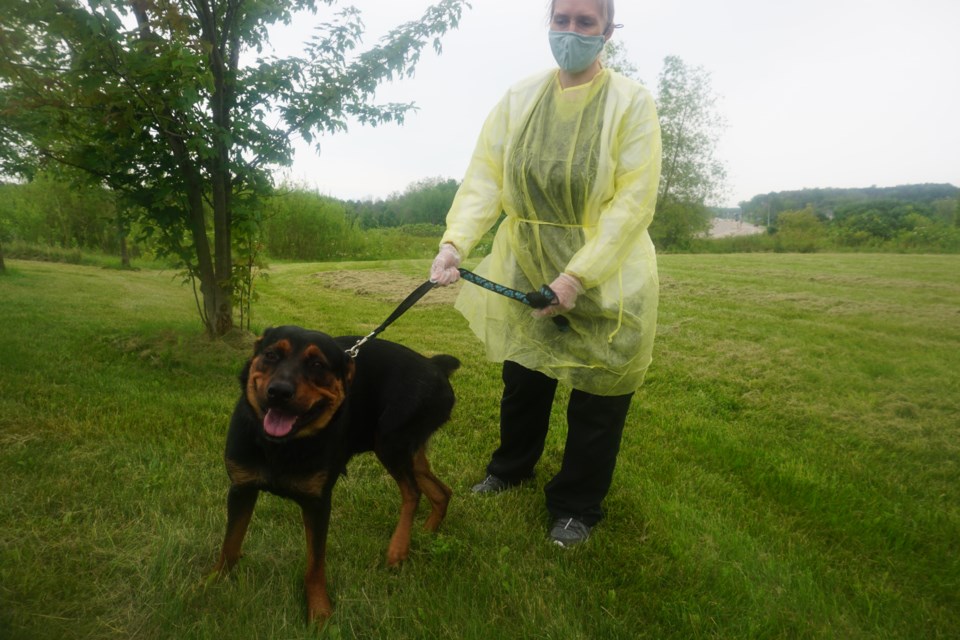After travelling close to 1,600 kilometres, Zoe should be able to put her feet...or at least paws up.
The friendly 18-month-old pup is part of a group of dogs that recently made the trek to the Ontario SPCA Midland & District Animal Centre to meet loving families waiting to adopt them through the agency’s adoption program.
“They’re all from remote communities in Northern Ontario,” explained Robin Elliott, community development coordinator at the local shelter. “We were invited into the communities because of lack of access to spay/neuter clinics.”
A total of seven dogs came into the care of the Ontario SPCA through the Second Chance Pet Network in Dryden, marking the first transfer initiative of the year from Northern Ontario.
“We haven’t had any transfers since the start of COVID,” Elliott said. “Four dogs came here while three went to Sudbury.”
The Ontario SPCA and its partners in the Animal North Network work alongside communities to deliver much-needed resources, such as food and mobile wellness services, and to manage dog populations by bringing free-roaming community dogs into the adoption program to prevent potentially unwanted puppies and to keep communities safer.
While Elliott noted the program serves an important role, she stressed that the dogs are loved in their former locations, but there are just too many given the lack of adequate veterinary care.
“They’re community dogs and they’re loved,” she said, adding the Ontario SPCA strives to transfer 350 to 500 dogs from remote communities annually.
Four of the dogs will be available for adoption through the Midland & District Animal Centre in the coming weeks, while the other dogs will be adopted through the Ontario SPCA Sudbury & District Animal Centre.
Arista Wogenstahl, Transfer Team Lead, Animal Protection Services, the Ontario SPCA and Humane Society, said everyone has a role to play in creating a healthy community for animals and people.
“We are excited to be working with our partners in Northern communities to support these dogs and continue to address the root of dog population challenges,” she said.
Elliott said she’s also happy the local animal centre has been able to reopen its leash-free zone to the public to give dogs in the community another place to play as COVID-19 restrictions begin to lift around the province.
“It’s finally open and we’re thrilled,” said Elliott, who has fielded numerous inquiries from the public about the park that closed after the global pandemic took hold in the region.
"It's such an amazing resource for the whole community. It really is such an important part of this area."
Park visitors are required to follow all COVID-19 safety measures that are posted, including maintaining physical distancing and wearing a mask while on site with their dogs.
Added shelter interim manager Megan Rezka: “We have closely followed public health guidelines throughout the pandemic and we continue to do so to keep the community safe.”
The Port McNicoll dog park, which is owned by the Ontario SPCA and Humane Society, is closed from 9 to 11 a.m. daily for private use by the animal centre to ensure time is set aside for the physical and mental well-being of dogs in its care.
Those interested in adopting a new friend, can visit the Ontario SPCA to meet animals available for adoption.
To learn more about the OSPCA’s work in the north, click here.
